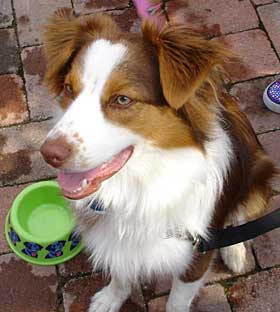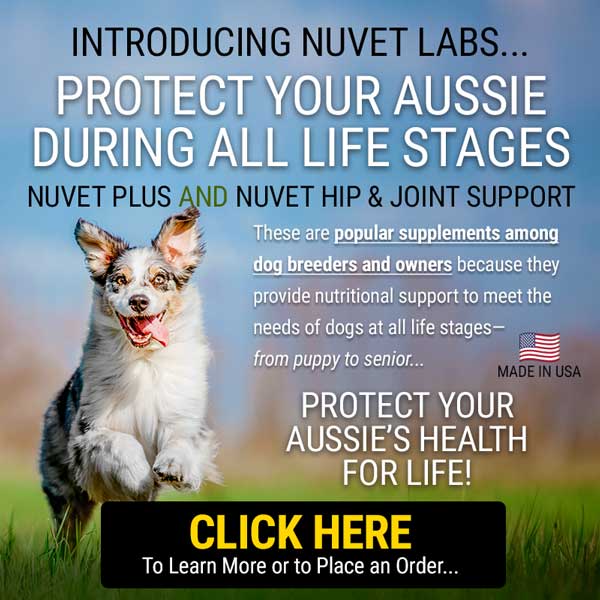
Tips for Creating Homemade Dog Food Recipes
Homemade dog food recipes are a popular option for those wary of the contents of most store-bought dog foods. It's a fairly well-known fact that many packaged dog foods are made from the lowest quality off-cuts of animal by-products. These products are often low in nutritional value, and in the case of canned foods they're also usually high in water content, so they aren't great value for money.
Dilated Cardiomyopathy (DCM) Notice
DCM is a heart condition that has been reportedly linked to certain low carbohydrate dog foods. However, the FDA has still not confirmed a specific cause and its latest study is also inconclusive. As such, at the time of this writing (July 16, 2020) there have still not been any recalls. For further information see: FDA, Dog Food Advisor article, and an article by Daniel Schulof, the founder and CEO of KetoNatural Pet Foods, Inc. addressing potential Bad Science and Financial Conflicts of Interest Plaguing the FDA's Investigation Into "Grain-Free" Pet Foods and Dilated Cardiomyopathy.
But creating your own homemade dog food recipes can also be hazardous if you don't know what you're doing. Here are a couple of important tips to keep in mind when using someone else's recipes or creating your own.
Too Much Sugar
Just as with humans, balance is an important factor when it comes to a dog's diet. You should try to avoid including too much of any type of food in a dog's diet – but sugar is one to keep an eye out for in particular.
In the wild, dogs are carnivores – although they do eat some vegetation as well (studies show that many dogs will consume the stomach contents of their prey first, and their prey are typically herbivores). This means sugar does not make up a large part of a wild dog's diet – particularly not the type of refined sugar we're used to eating.

Karen Peters
Although she went through dog training, Roxy still has some silly habits including falling asleep on the dining room table.
Also be aware that some sugar substitutes may be harmful or fatal to dogs. These substitutes are made of chemical compounds which have been approved as safe for humans, but not necessarily for animals.
What to Include in Your Homemade Dog Food Recipes?
Here are the things you do need to provide as part of your dog's diet:
- protein
- carbohydrates
- fat
- vitamins and minerals (especially calcium – calcium deficiency is common in dogs fed on homemade diets)
The correct portions of these will depend on your dog's size, age and any special diet needs he or she may have – if you're in doubt about how to balance your dog's diet, consult your vet. Recipes that combine a high-protein meat source (such as beef or lamb) with carbohydrates (rice or pasta) and some vegetables are usually a safe bet. Bear in mind onions, garlic and chocolate can all be toxic to dogs and should be excluded. Salmon and tuna are also good options as protein sources.
Processed Foods
If you're making your own homemade dog food recipes because you've heard about the health benefits, it's a good idea to avoid putting too many processed foods into your recipes. Many of the negative health issues that turn people off store-bought dog foods relate to the way those foods are processed. Processed foods are often stripped of a large proportion of their nutrients – they meet the minimum legal standards to be sold according to what's on their label, but in terms of nutritional value they're at the bottom of the barrel.
Wheat Gluten
Gluten intolerance (formally called celiac disease) is an issue that hasn't been widely acknowledged in humans until relatively recently, but it's now obvious that this problem also affects dogs. Australian Shepherds in particular seem to be fairly sensitive to gluten. It's best to avoid including wheat products in your dog's recipes, especially if you notice the dog behaving strangely or exhibiting physical symptoms after having eaten wheat products.
A Warning on Bones
There are few Aussies who don't love to chew on a bone, but owners need to be aware of the dangers involved in giving their pet a bone to chew. While chewing is generally healthy because it keeps the dog's teeth clean and jaws strong, it can also be dangerous if the dog swallows pieces of bone. Never give you dog bone shards and consider removing bones altogether from any homemade dog food recipes you create. If you still want to let your dog chew bones, make sure they're sturdy (such as hip bones) rather than thin, easily breakable ones. And never, ever give your dog cooked chicken bones.
Have Dog Training Questions?
Check out these introductory dog training videos...
I want my dog to stop being aggressive.
I want some help training my new puppy.
I want my dog to stop barking at everything.
Get Australian Shepherd Info, Website Updates, Special Offers, and Cartoons...
FREE GIFT
You'll also receive a free copy of the ebook
My Everyday Dog Training Tools
by professional dog trainer Daniel Abdelnoor, "Doggy Dan"











 Loading Image...
Loading Image...